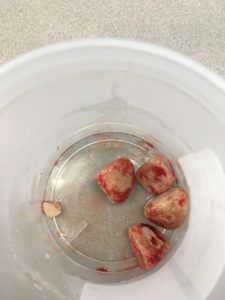A cystotomy is a surgical procedure in which an incision is made in the abdomen and bladder. It is commonly performed to facilitate removal of stones or crystals (uroliths) from the urinary tract. The procedure may also be performed to diagnose or treat problems including tumors, trauma to the bladder, and urinary tract infections.
Preparing for a Cystostomy
Before performing a cystostomy, your veterinarian will carry out tests to assess your pet’s overall condition and ensure that they are healthy enough to undergo anesthesia.
Tests may include a complete blood count, urinalysis, and bloodwork. Imaging techniques such as X-rays and ultrasounds may also be performed to diagnose underlying health conditions.
Your pet will be placed under general anesthesia and positioned on the operating table. Your veterinarian will then shave and disinfect the surgical site in preparation for surgery.
Cystostomy Procedure
An incision will be made in your pet’s abdomen to allow the abdominal cavity to be opened. Once the bladder is isolated, an incision will be created. The bladder will then be drained of urine to prevent contamination during surgery. Your veterinarian will continue the procedure to treat or diagnose your pet’s underlying condition. Finally, sutures will be used to close incisions in the bladder and abdomen.
Postoperative Care
Following the procedure, your pet will be given analgesics to manage their pain. Antibiotics may also be given if an infection is present. A short period of hospitalization will be necessary to monitor your pet and aid their recovery.
After your pet has been released from the hospital, it is important to limit their activity while they heal. Your veterinarian will prescribe analgesics to relieve pain. Antibiotics may also be necessary if your pet has a secondary urinary tract infection.
Please follow treatment advice closely and administer all medications as instructed. It is also important to consult with your veterinarian immediately if your pet experiences complications such as swelling, bleeding, or discharge following surgery.
Cystostomy Prevention
If your pet is susceptible to urolithiasis (bladder stones), ask your veterinarian for advice on preventing stone formation with dietary management. It is also vital to provide plenty of fresh water to flush out the urinary tract, and schedule regular appointments with your veterinarian to monitor your pet’s health.


